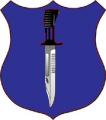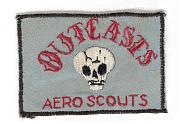Had to happen sooner or later!
I don't think it does disappear. I think it mutates into the something less useful for reasons few are prepared to admit.What is interesting is why this prowess disappears.
The great question of military thought is:"why do we not do, what we know works?"









 ). It certainly does not guarantee that the person can read, write, do basic arithmetic or find the #ss with both hands and a manual. I find it absolutely fascinating that O'Hanlon states that
). It certainly does not guarantee that the person can read, write, do basic arithmetic or find the #ss with both hands and a manual. I find it absolutely fascinating that O'Hanlon states that . (okay, I'll get off my sarcastic soapbox now...)
. (okay, I'll get off my sarcastic soapbox now...)




Bookmarks